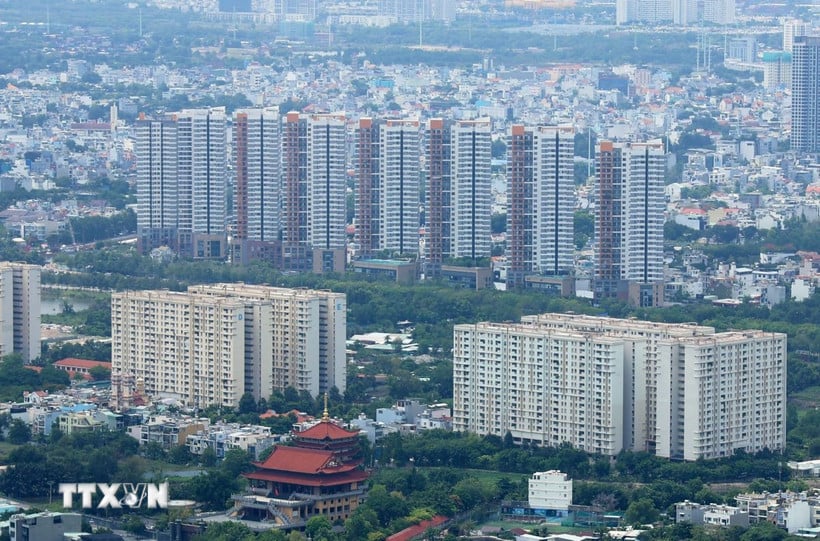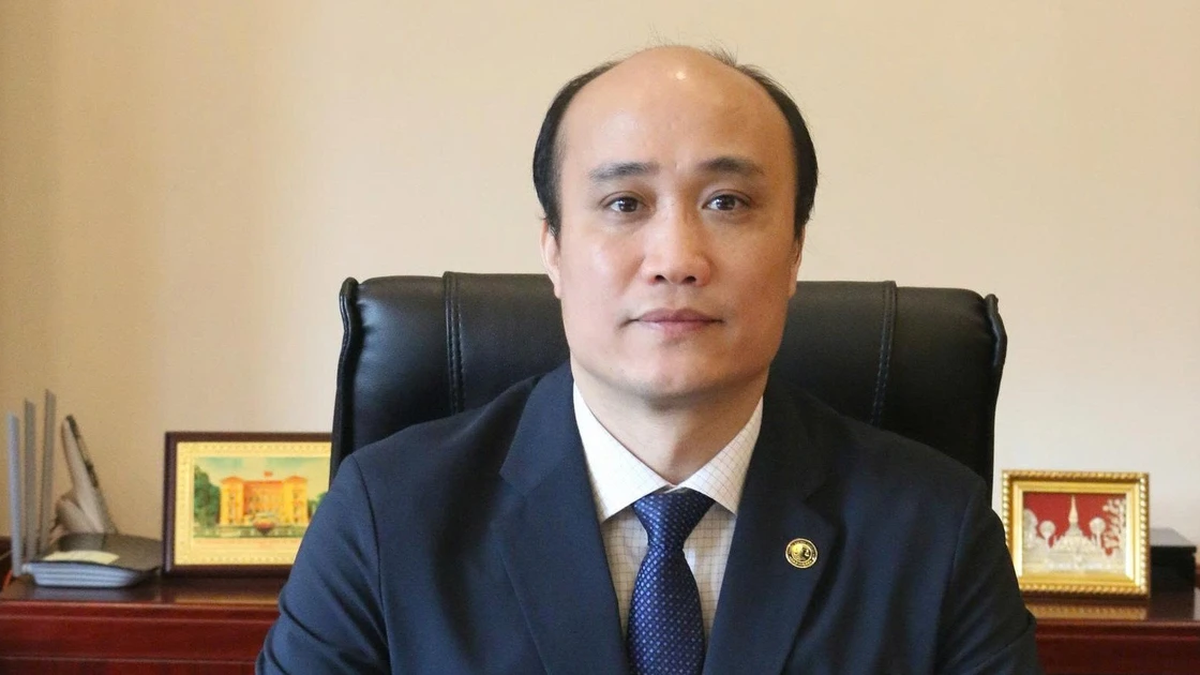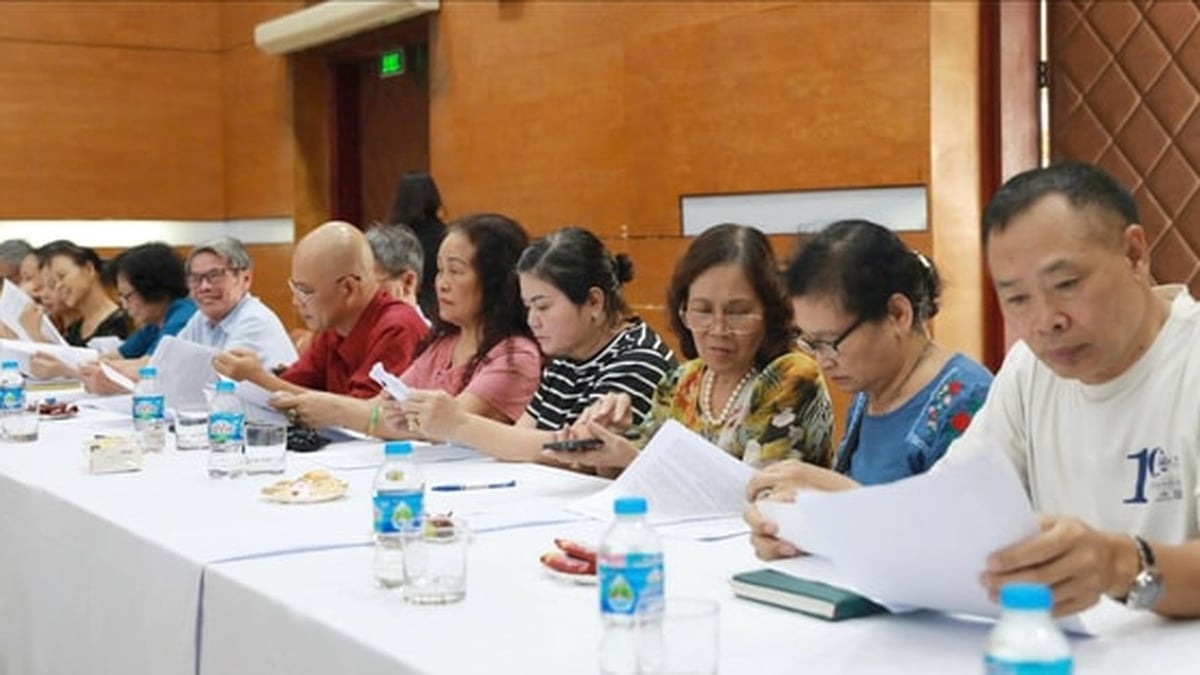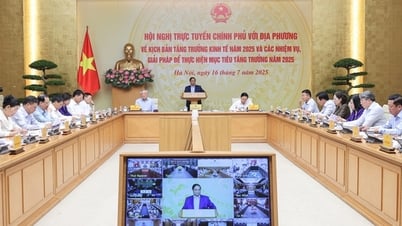 |
| Dr. Luong Tuan Anh gave the example of the new Ho Chi Minh City - including the three provinces of Binh Duong , Ba Ria Vung Tau and the old Ho Chi Minh City - which will create great resonance when Ho Chi Minh City is the financial center, Binh Duong is the industrial center and Ba Ria Vung Tau is the tourism center. (Photo: Hong Dat/VNA) |
Organizing two-level local government and rearranging provincial-level administrative units is a correct policy, in line with the general trend of the world. Mr. Luong Tuan Anh - Doctor of Economics at De Montfort University, UK - expressed the above viewpoint in an interview with VNA reporters.
Dr. Luong Tuan Anh expressed his support for this policy, and said that this is a necessary reform step for Vietnam to take advantage of domestic and international opportunities for development. According to him, Vietnam's innovation policy after 40 years needs to be adjusted to suit the new situation in a rapidly changing world facing geopolitical instability, climate change and the development of artificial intelligence (AI).
He believes that reforming the government apparatus will contribute to reducing regular expenditures, which account for nearly 56% of the national budget (this rate in the UK is only 30%), and allocate more budget for development investment.
Dr. Luong Tuan Anh said that organizing a two-level local government helps to give more power to local governments that understand the needs and capacities of their localities, thereby being able to come up with policies that are suitable to reality.
He cited the experience in the UK where local councils are allowed to collect council tax and decide how to allocate budget from tax revenue to local issues such as security, education, health, sanitation, and environment.
The empowered local government will have to allocate the budget appropriately to issues that people care about such as social security, health care, education, etc. to be able to convince people to be willing to pay taxes.
However, Mr. Luong Tuan Anh noted that although the two-tier government system in the UK grants autonomy to localities, to ensure the rights of the people, the central government still supports localities in emergencies or when localities are no longer able to maintain services for the people.
Discussing the reorganization of provincial administrative units, Dr. Luong Tuan Anh said that although it is costly, this change brings many benefits. Dr. Luong Tuan Anh cited the results of a research project on merging provinces in Vietnam that he just completed, showing that the merger will create resonance.
He gave the example of the new Ho Chi Minh City - including the three provinces of Binh Duong, Ba Ria Vung Tau and the old Ho Chi Minh City - which will create great resonance when Ho Chi Minh City is the financial center, Binh Duong is the industrial center and Ba Ria Vung Tau is the tourist center.
This combination will create an advantage in attracting foreign investment to Ho Chi Minh City and when there is no more administrative border, it will help facilitate traffic connection. The new Ho Chi Minh City will be an attractive destination when investors can work in Ho Chi Minh City, build factories in Binh Duong and live in Vung Tau.
He also pointed out that merging localities will create momentum and help localities take advantage of each other's role and strengths, thereby creating better development opportunities for the new province.
Sharing his experience in administrative management in the UK, Dr. Luong Tuan Anh said that before the UK Government implemented reforms, people had to go to the websites of public agencies to download forms, fill in information and send them by post or come in person to submit their documents.
From 2021 during the COVID-19 pandemic, the UK Government has implemented an initiative
The implementation will be expanded in 2023 and from 2024, all administrative procedures will be carried out online, helping to simplify procedures and save time and costs for both citizens and authorities.
Dr. Luong Tuan Anh said that implementing administrative procedures online creates data connectivity between ministries, as well as public service providers, saving time for people when they do not have to re-provide information that has been stored in the system when performing a previous procedure.
The system also provides immediate feedback when people fill in incorrect information, and updates the application processing process, making it easy for applicants to check the progress.
In addition to the online system, the government also provides direct support services to people in the process of carrying out administrative procedures, such as organizing specialized support departments at local councils or public lawyers.
Dr. Luong Tuan Anh shared that transparency, accountability and scientificity are lessons learned from the administrative reform process in the UK. Transparency aims to create convenience and ease for people when carrying out administrative procedures while ensuring that civil servants handling documents do not abuse and profit from the powers assigned to them.
Accountability puts pressure on civil servants to perform their duties properly and to be accountable to the National Assembly, supervisory agencies and the public for their performance of public duties when problems arise.
Scientificity ensures that systems are built on scientific data and fact-checked instead of relying on the subjective opinions of officials and individual managers. Dr. Luong Tuan Anh said these factors create the professionalism of public administration that Vietnam can refer to./.
Source: https://huengaynay.vn/chinh-tri-xa-hoi/theo-dong-thoi-su/chinh-quyen-dia-phuong-2-cap-buoc-di-phu-hop-voi-xu-the-quoc-te-155698.html





















































![[Maritime News] More than 80% of global container shipping capacity is in the hands of MSC and major shipping alliances](https://vphoto.vietnam.vn/thumb/402x226/vietnam/resource/IMAGE/2025/7/16/6b4d586c984b4cbf8c5680352b9eaeb0)












































Comment (0)